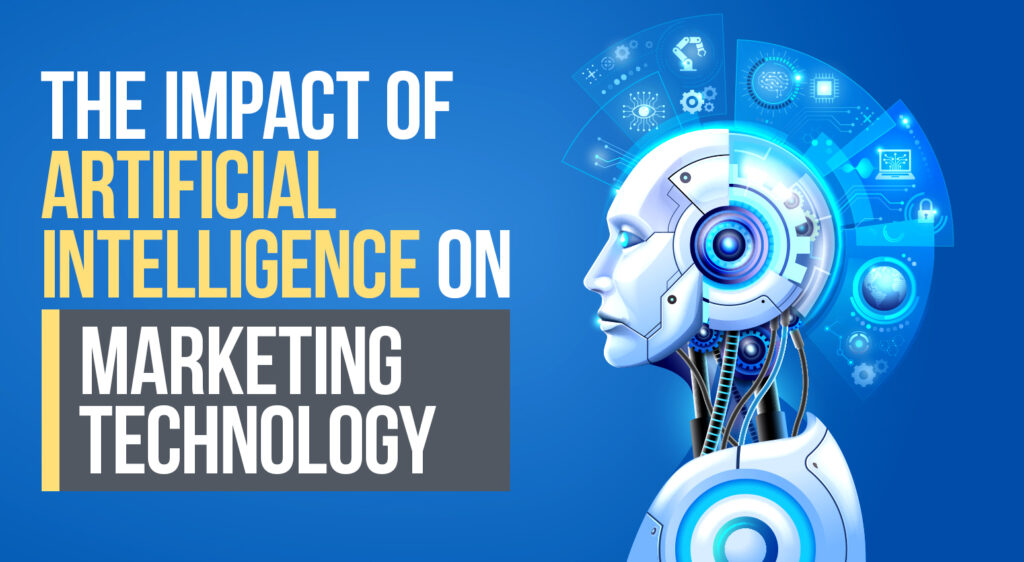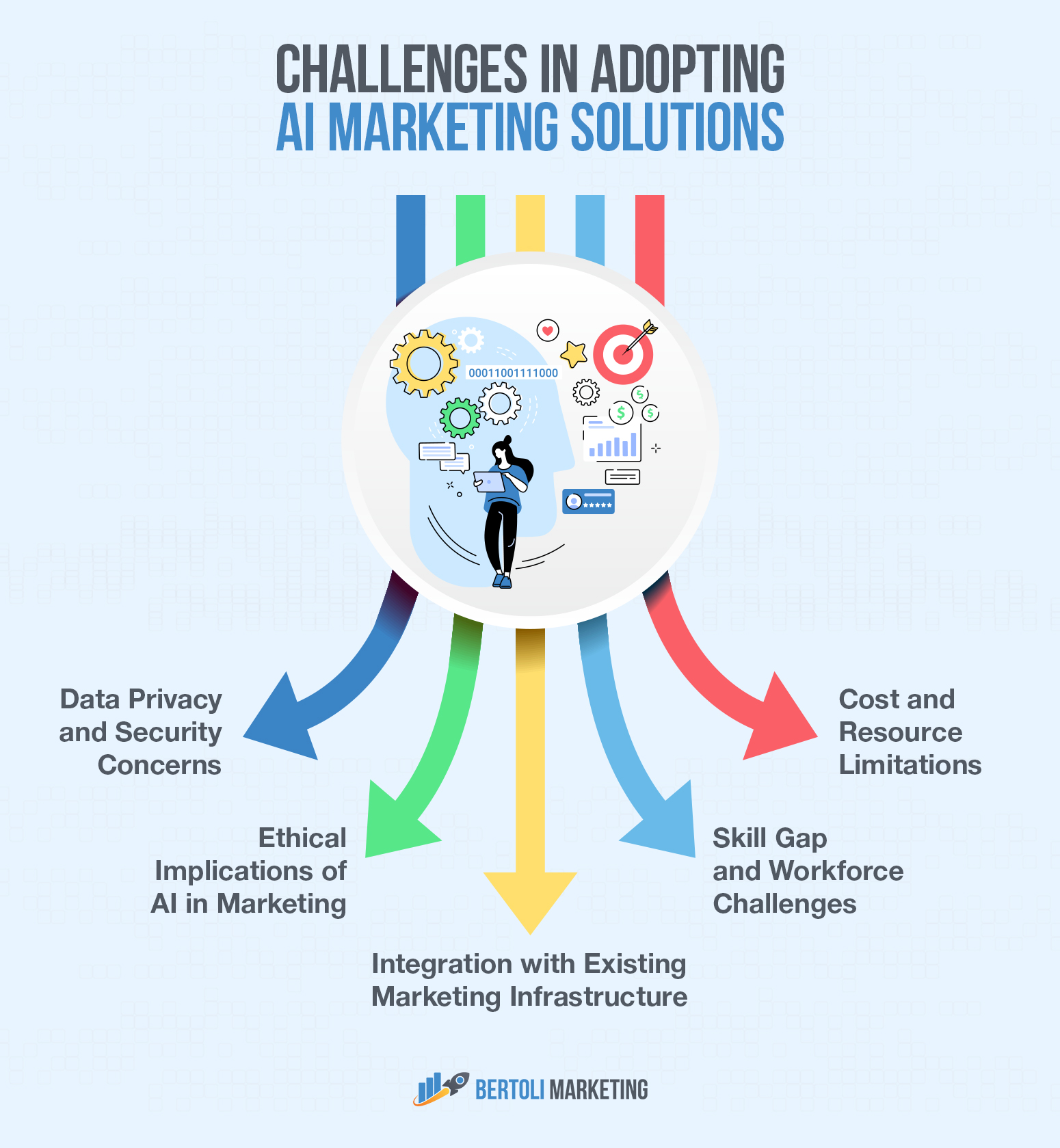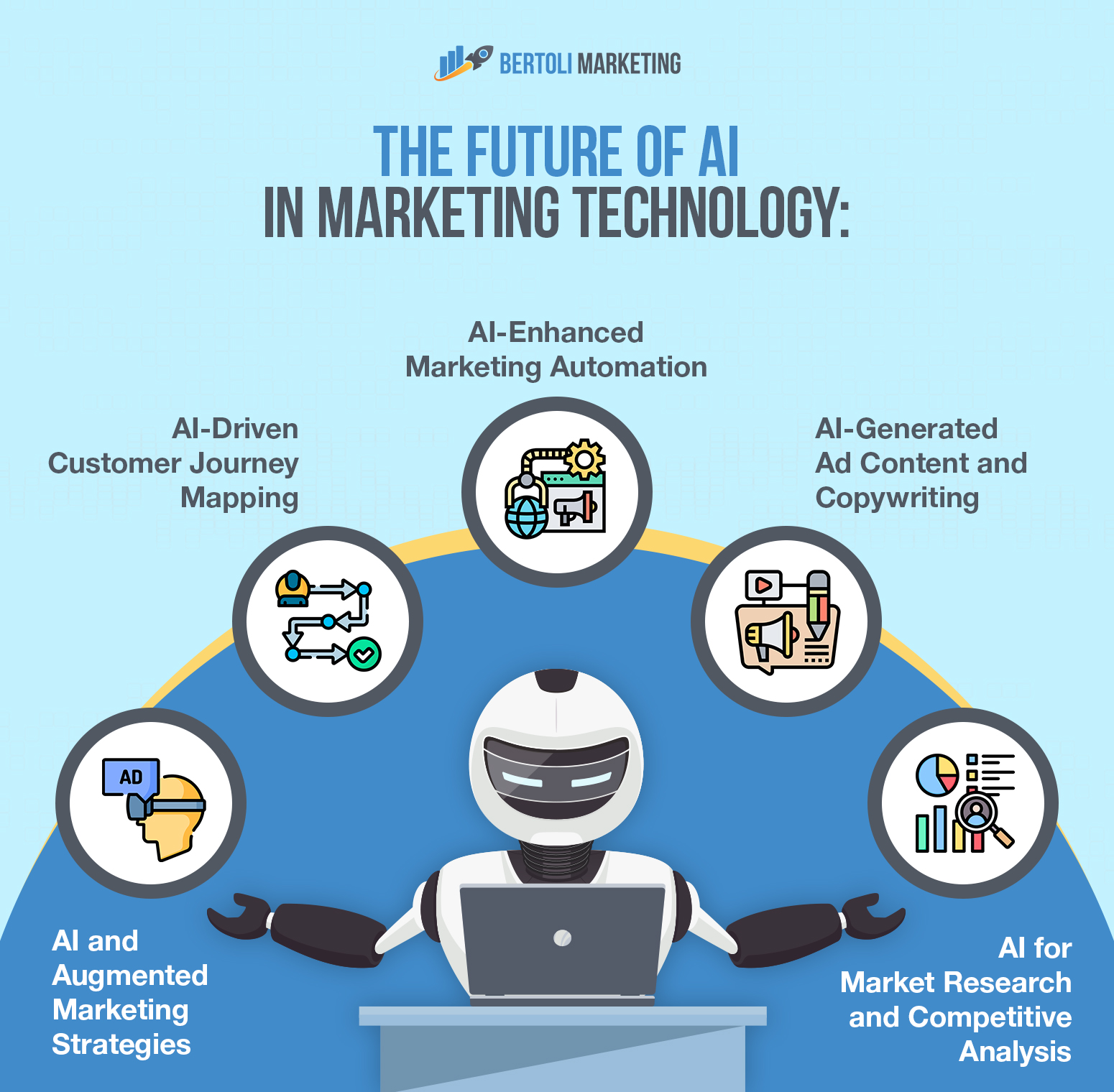
The rise of artificial intelligence (AI) has brought about transformative changes across various industries, and marketing is no exception. As AI continues to evolve and mature, its integration into marketing technology has opened up new avenues for businesses to reach and engage with their target audiences. This article explores the multifaceted impact of AI on marketing technology, focusing on advancements, challenges, and future prospects. By analyzing the potential of AI-driven marketing solutions, we shed light on the transformation of marketing strategies and the evolving landscape of customer interactions.
Definition of AI
Artificial Intelligence refers to the simulation of human intelligence processes by machines, allowing them to perform tasks that typically require human intelligence, such as learning, reasoning, problem-solving, and decision-making. AI in marketing technology involves leveraging machine learning algorithms, natural language processing, computer vision, and other AI techniques to enhance various aspects of marketing campaigns and customer interactions.
AI Applications in Marketing
AI has found diverse applications in marketing, including personalized product recommendations, content creation, customer segmentation, sentiment analysis, chatbots for customer support, predictive analytics, and more. These applications enable businesses to optimize marketing efforts, understand customer behavior, and deliver personalized experiences at scale.
Key Components of AI in Marketing Technology
The three primary components of AI in marketing technology are data, algorithms, and computing power. High-quality and large datasets are crucial for training AI models. Sophisticated algorithms, such as deep learning and reinforcement learning, are used to process and analyze data. Additionally, the availability of powerful computing resources, like GPUs and cloud platforms, facilitates faster AI model training and deployment.
Personalization and Customer Segmentation
AI-powered personalization tailors marketing content, product recommendations, and offers based on individual customer preferences and behavior. By segmenting customers effectively, businesses can deliver highly targeted campaigns, leading to increased conversion rates and customer satisfaction.
Predictive Analytics and Data Insights
AI-driven predictive analytics enables marketers to anticipate customer needs, identify potential churn, and forecast future trends. By analyzing vast amounts of data, businesses gain valuable insights into customer behavior and can make data-driven decisions to optimize marketing strategies.
Natural Language Processing (NLP) in Content Marketing
NLP allows machines to understand and interpret human language, opening up avenues for AI-generated content, sentiment analysis, and chatbots for customer interactions. NLP-powered content marketing can create engaging and relevant content, improving customer engagement.
AI-Powered Chatbots and Customer Service
AI-powered chatbots offer real-time customer support, providing quick responses to queries and automating routine tasks. These chatbots are available 24/7, enhancing customer satisfaction and reducing the workload on human support teams.
Programmatic Advertising and Real-Time Bidding
Programmatic advertising uses AI algorithms to automate the ad buying process, optimizing ad placements and targeting specific audiences in real-time. Real-time bidding enables advertisers to bid for ad impressions, ensuring maximum efficiency and relevance of ad placements.
Hyper-Personalization
AI facilitates hyper-personalization by analyzing customer data to deliver tailor-made experiences. From product recommendations to targeted marketing messages, hyper-personalization enhances customer engagement and loyalty.
Improved Customer Service
AI-driven chatbots and virtual assistants provide instant support, resolving customer queries efficiently. This improves customer satisfaction and reduces response times, leading to increased customer loyalty.
Voice Search and AI Assistants
The integration of AI-powered voice search and virtual assistants enables consumers to interact with brands using voice commands. This technology offers a more natural and convenient way for customers to engage with businesses.
Augmented Reality (AR) and Virtual Reality (VR) in Marketing
AI, in combination with AR and VR technologies, allows businesses to create immersive experiences for customers. From virtual try-ons for fashion products to interactive product demos, AR and VR enhance the overall customer experience.
AI-Generated Content and Creativity
AI-generated content, such as automated copywriting and video creation, streamlines content creation processes. While AI can assist in generating content, human creativity remains essential in developing authentic and emotionally resonant marketing materials.
Data Privacy and Security Concerns
As AI in marketing relies heavily on customer data, businesses must address data privacy and security issues. Collecting and processing sensitive customer information raises concerns about data breaches and unauthorized access. Compliance with data protection regulations, such as GDPR (General Data Protection Regulation) and CCPA (California Consumer Privacy Act), becomes crucial to maintain customer trust.
Ethical Implications of AI in Marketing
AI-driven marketing introduces ethical dilemmas, including AI bias, manipulative marketing tactics, and misinformation dissemination. Marketers must ensure that AI models are trained without biased data to avoid perpetuating stereotypes or discriminatory practices. Ethical AI use involves transparency and a clear understanding of how AI influences customer choices.
Integration with Existing Marketing Infrastructure
Integrating AI technology into existing marketing infrastructure can be complex and challenging. Businesses may face compatibility issues with legacy systems, necessitating substantial investments in IT infrastructure and employee training. A seamless transition is necessary to maximize the benefits of AI without disrupting existing marketing processes.
Skill Gap and Workforce Challenges
The successful adoption of AI marketing solutions requires a skilled workforce capable of managing and interpreting AI-generated insights. However, the shortage of AI talent and the need for specialized expertise can hinder its effective implementation. Upskilling and reskilling employees become essential to fully harness the potential of AI in marketing.
Cost and Resource Limitations
Implementing AI in marketing may involve substantial initial costs, especially for smaller businesses. High-end AI solutions often require significant computational resources and cloud-based infrastructure, which may not be financially viable for all organizations. Businesses must carefully evaluate the return on investment and prioritize AI initiatives based on their specific needs.

AI and Augmented Marketing Strategies
The future of marketing lies in augmenting human capabilities with AI-driven insights. AI will play a vital role in optimizing marketing strategies, identifying emerging trends, and making data-backed decisions.
AI-Driven Customer Journey Mapping
AI will further enhance customer journey mapping by providing detailed insights into each touchpoint and interaction. This will enable businesses to create personalized experiences throughout the customer’s buying journey.
AI-Enhanced Marketing Automation
Marketing automation powered by AI will become more sophisticated, streamlining repetitive tasks and allowing marketers to focus on creativity and strategy. AI will enable businesses to automate complex decision-making processes, resulting in more efficient and personalized marketing campaigns.
AI-Generated Ad Content and Copywriting
AI-generated ad content and copywriting will evolve, producing high-quality, relevant, and emotionally engaging content. Marketers will collaborate with AI tools to create compelling narratives that resonate with their target audiences.
AI for Market Research and Competitive Analysis
AI will revolutionize market research and competitive analysis by efficiently processing vast amounts of data and extracting meaningful insights. This will empower businesses to stay ahead of competitors and better understand consumer preferences.

Amazon: Personalization and Recommendation Engines
Amazon’s recommendation engine is one of the most renowned examples of AI-driven marketing. It analyzes user behavior and purchase history to deliver personalized product recommendations, contributing significantly to Amazon’s success.
Spotify: AI-Driven Music Discovery and Recommendations
Spotify uses AI algorithms to create personalized playlists, discover new music, and recommend songs based on users’ listening habits. This enhances user engagement and keeps subscribers loyal to the platform.
Sephora: Virtual Try-On Using AR Technology
Sephora’s Virtual Artist app leverages AI and augmented reality to allow customers to try on makeup virtually. This interactive experience increases customer satisfaction and reduces the likelihood of returns.
Netflix: Content Recommendation and Predictive Analytics
Netflix’s recommendation system uses AI to suggest movies and TV shows based on users’ viewing history. This feature has played a crucial role in keeping subscribers engaged and improving user retention.
Starbucks: AI-Powered Customer Loyalty Program
Starbucks employs AI to analyze customer data and offer personalized rewards and promotions through its loyalty program. This approach encourages repeat visits and fosters customer loyalty.
AI Bias and Fairness in Targeting
To ensure fairness and inclusivity, marketers must actively mitigate AI bias. Bias can lead to discriminatory practices, which may damage a brand’s reputation and alienate potential customers. Rigorous testing and ongoing monitoring are essential to identify and rectify biased AI models.
Transparency and Explainability
Marketers must ensure transparency in AI marketing practices, clearly communicating to customers when AI is involved in their interactions. Additionally, explaining the reasoning behind AI-generated decisions can help build trust and foster customer understanding.
Balancing Personalization with Privacy
Personalization should not come at the expense of customer privacy. Businesses must strike a balance between utilizing customer data for tailored experiences and respecting individual privacy preferences.
Regulation and Governance in AI Marketing
Governments and regulatory bodies are increasingly scrutinizing AI applications, including marketing practices. As AI technology evolves, it is essential for businesses to adhere to relevant regulations and industry standards to avoid legal repercussions.
Summary of Findings
AI’s integration into marketing technology has sparked a revolution in customer engagement and experience. The advancements in AI-driven marketing solutions have led to hyper-personalization, improved customer service, and augmented marketing strategies.
The Significance of AI in Marketing Technology
AI is reshaping marketing practices, enabling businesses to understand customer behavior at a granular level, optimize marketing strategies, and deliver personalized experiences at scale.
Implications for the Future of Marketing
The future of marketing will be increasingly AI-driven, with businesses relying on data-driven insights and automation to stay competitive in the digital age.
Final Thoughts
While AI holds immense potential for marketing technology, businesses must address ethical challenges, prioritize data privacy, and ensure responsible AI use to foster trust and build lasting customer relationships.
In conclusion, the integration of AI in marketing technology is redefining customer interactions, enabling businesses to create more personalized and impactful experiences. While advancements in AI marketing solutions have opened new possibilities, addressing ethical and privacy concerns remains critical. As AI continues to evolve, marketers must embrace responsible AI practices to leverage its full potential and unlock a future of customer-centric marketing strategies.